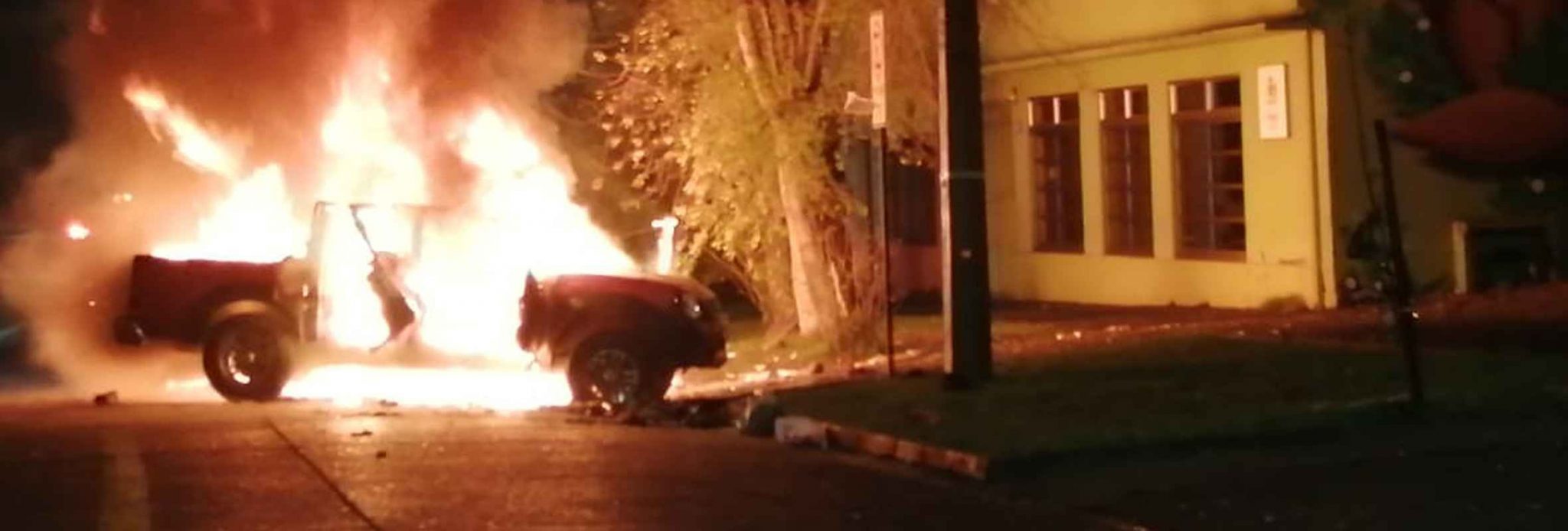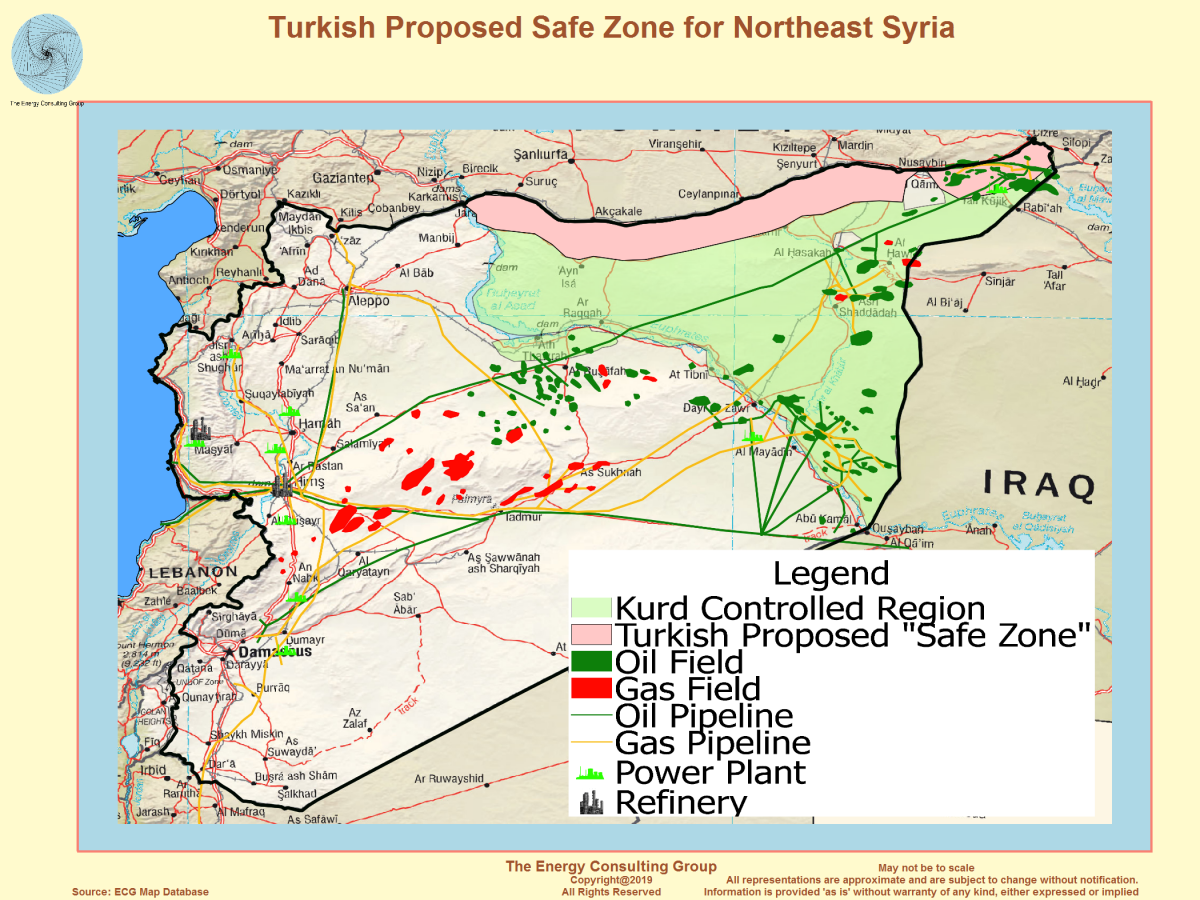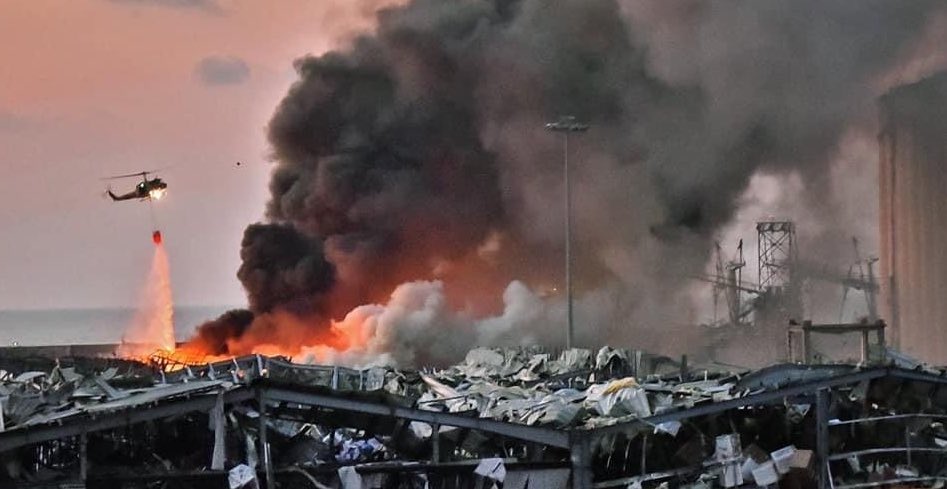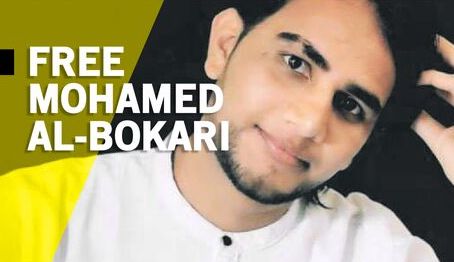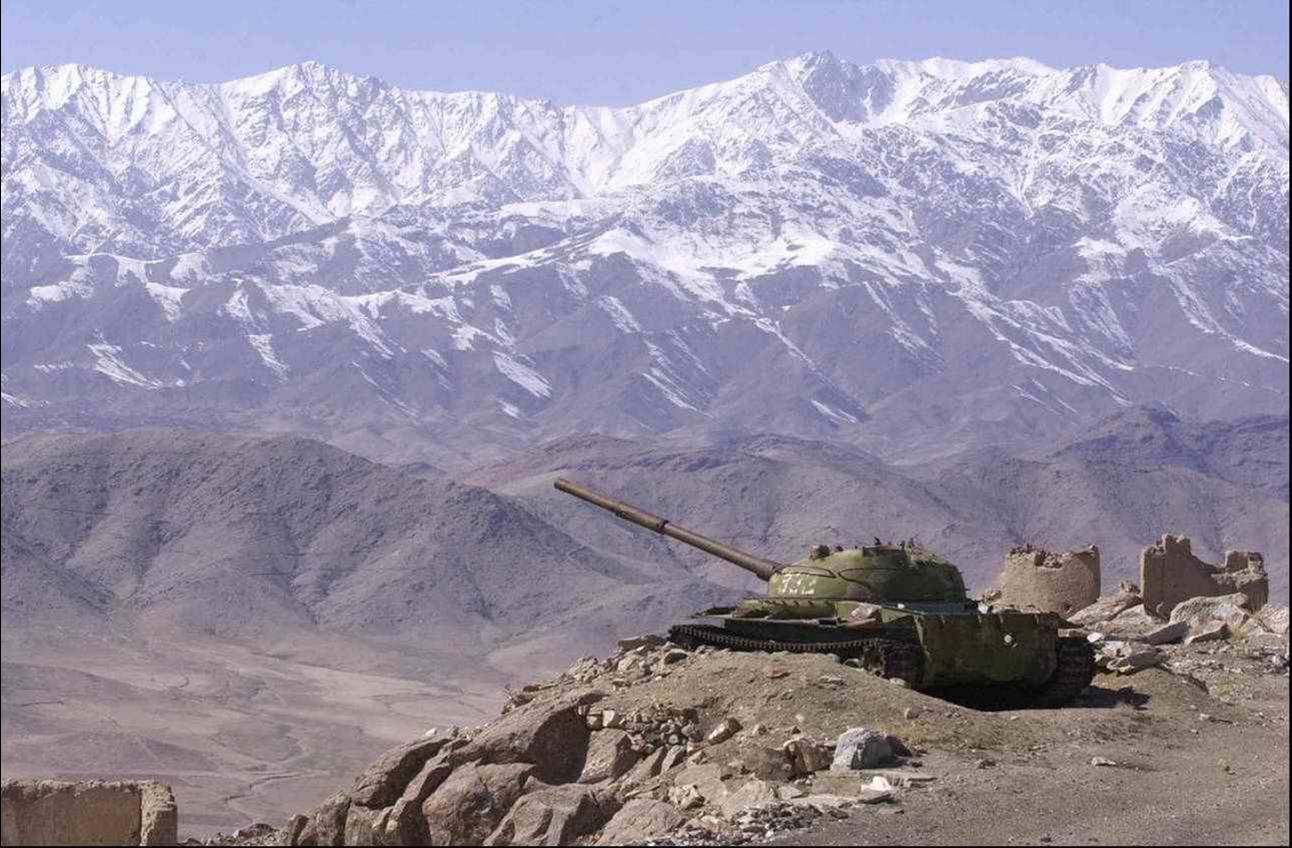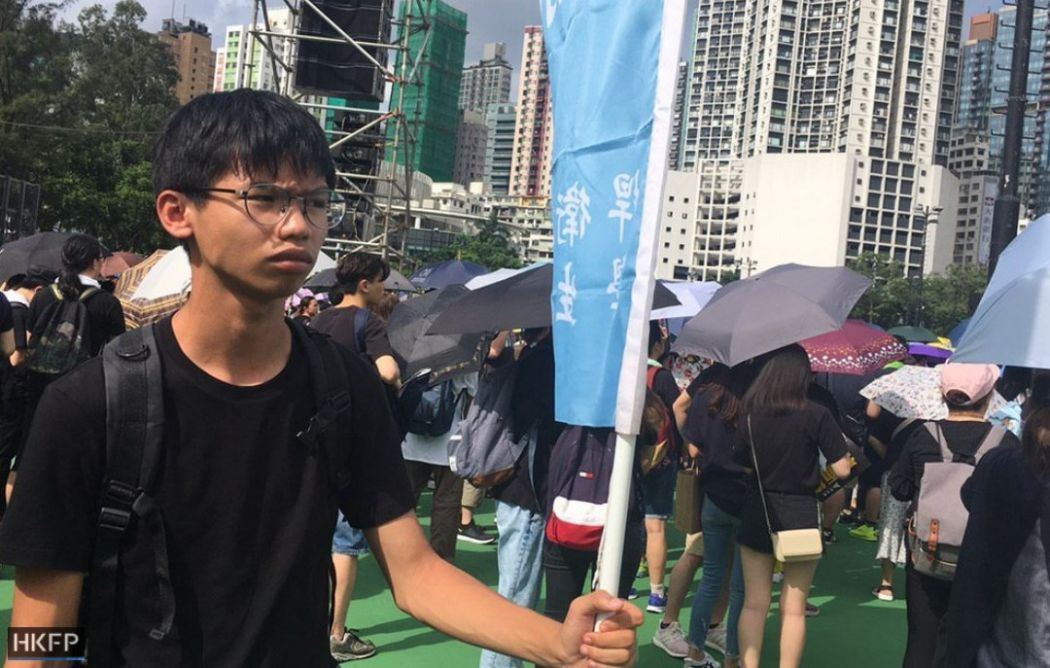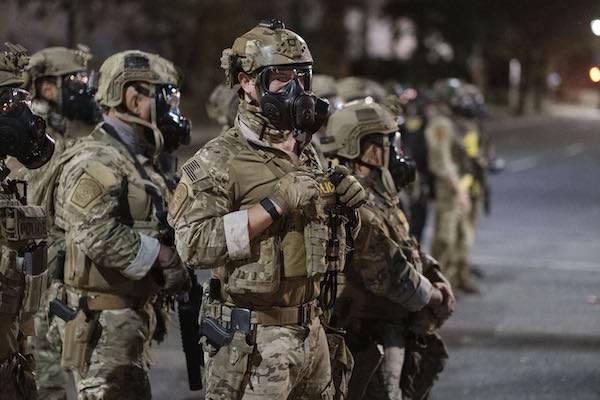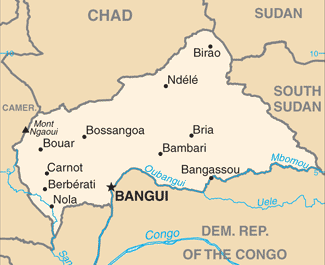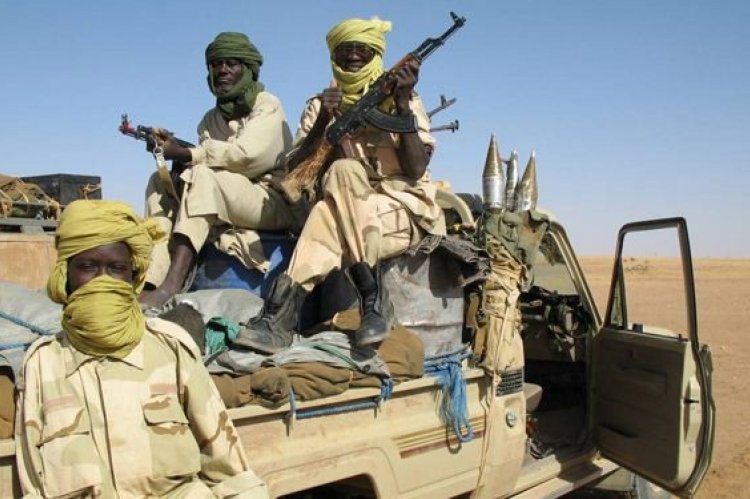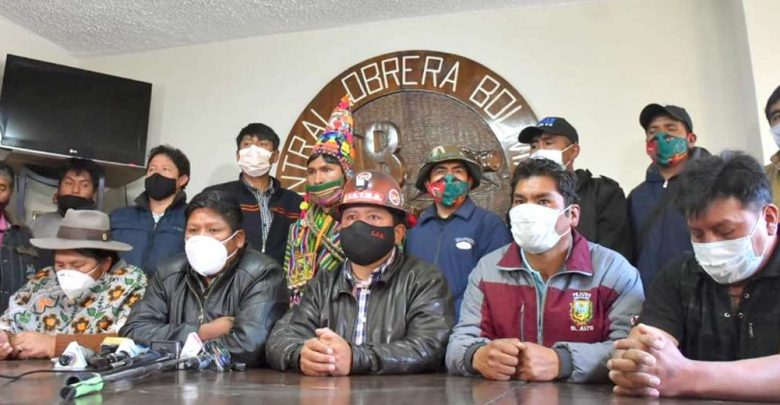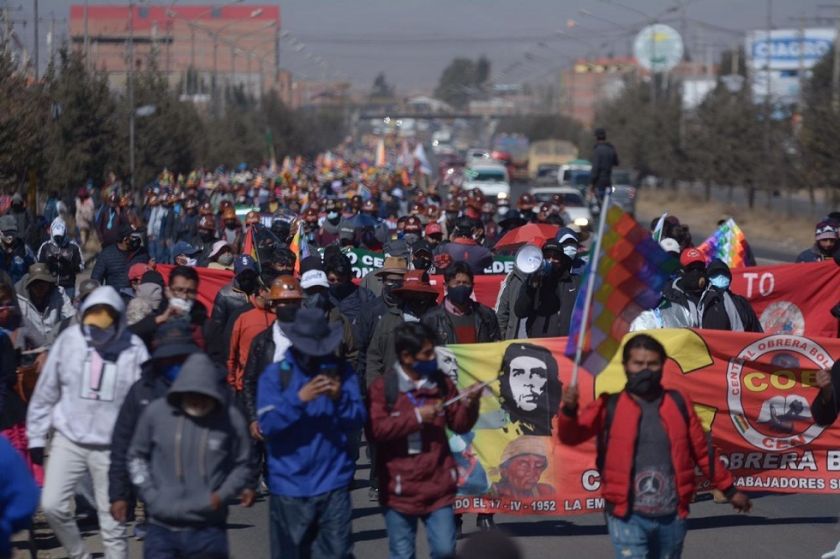
Mass protests paralyze Bolivia
Protesters have launched blockades across main roads through Bolivia over the past days, effectively cutting of La Paz and other cities, to oppose the government’s postponement of new presidential elections. The blockades have raised fears of food and gasoline shortages, with throngs of La Paz residents lining up outside markets and petrol stations. Chancellor Karen Longaric portrayed the protests as being masterminded from exile by ousted president Evo Morales, saying “Ex-president Morales and groups aligned with the Movement Toward Socialism have initiated violent and inhuman acts.” (Photo: Página Siete)



